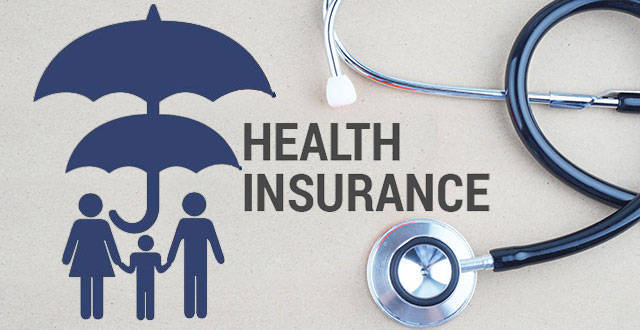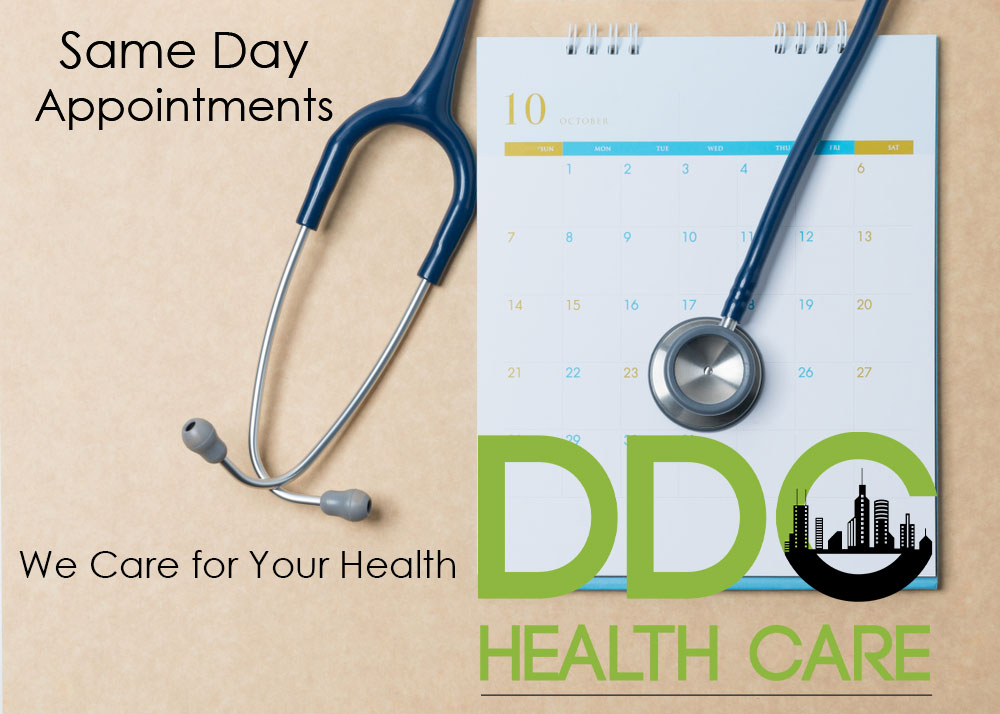It’s OCTOBER! Are You Living Your Best Life?
HAVE YOU SCHEDULED YOUR ANNUAL CHECK UP?

We are now in the last quarter of the 2023 year and many of you have possibly met your out-of-pocket maximum and or your annual deductible for the year. Consequently, your health insurance will pay for 100% of most covered health benefits for the rest of the policy period. We recommend you begin by scheduling your annual physical and blood work so that you can enter into the new year living your best life.
It is recommended that you have an annual medical check-up to ensure your body is functioning normally. This check-up is done to keep track of your medical needs, maintain the normal function of your body and to if there is any disease. It’s a screening ,done to make sure that your body operates in the right manner. An annual check up is particularly necessary for children and older people, who are more susceptible to diseases.
Your visit will include things like:
-Discussing your recent bloodwork/labs or ordering new ones.
-Obtaining weight, blood pressure and heart rate
-Talking about any health concerns or potential health issues
-Going over current medications and others that may be necessary

Preparing for your annual physical
1) Don’t eat for at least two hours before the exam to keep blood sugar and blood pressure from elevating. Twelve hours of fasting is preferred, so try to schedule your exam in the morning so you can fast overnight.
2) Avoid too much salty and fatty foods. They raise blood pressure and triglycerides. It’s best to avoid them for at least 24 hours before your exam, preferably two or three days.
3) If you’re having blood work done, be sure to fast and drink only water for the specified period before your appointment.
4) Have a list of prescription and over-the-counter medications and supplements you take regularly.
Health Insurance Open Enrollment
What You Should Know

Choosing a Health Insurance Plan
Whether you’re starting a new job or it’s open enrollment season at your current one health insurance company, it’s important to make sure you’re getting everything you can from your health insurance plan. Even if you’re planning to stay on the same plan, you should still take time to review a few things before re-signing.
What are the needs of our family?
If you’re married and/or have children, think about what your family needs from a healthcare plan. Because coverage can change from year to year, it’s helpful to know what plan will be better for your situation.
Know when open enrollment begins and ends.
Open enrollment is the eligible window to enroll in or change your insurance plan. If you’re purchasing health insurance through a government run exchange, open enrollment generally starts in the fall and can vary by state. If your employer offers health insurance, open enrollment can happen at any point throughout the year. It’s also a good reminder to review your current policy and make sure you and your family are getting everything you need from your healthcare plan.
Review your coverage options.
If you’re looking at individual or family insurance plans outside of an employer, think about what degree of coverage you need when selecting a plan. Individual health insurance plans are often categorized by how much coverage they offer. On the Health Insurance Marketplace, for example, plans are presented in “metal” categories: platinum, gold, silver, and bronze, with “catastrophic” plans also available to some people. Check the premiums, co-payments, and deductibles.
Insurance plans come with several out-of-pocket costs:
-You pay a premium for your coverage, regardless of the services you use.
-Co-payments are a fixed fee for certain kinds of office visits, prescriptions or other kinds of care, and are paid at the time of service.
-Deductibles are costs you pay before your insurance kicks in.
-You may also pay co-insurance on certain services- for example, your insurance may cover only 80%, so you would be responsible for the remaining 20%.
-Many plans also have out-of-pocket maximums: Once you hit this number, your insurance would cover all costs.
Be sure to look at what costs might be associated with those services under each plan you’re considering.
Check the provider networks.
Write down all the providers you think you or your family may use in the next year like physicians, specialists, and even hospitals and pharmacies. During open enrollment, review each plan to see if your preferences are included. Keep in mind, medical professionals and insurance companies often update their contracts. Doctors or other professionals that were in-network this year may be out-of-network next year.
Consider HSAs and FSAs.
Health Savings Accounts and Flexible Spending Accounts allow you to set aside pre-tax dollars to pay for eligible healthcare expenses, such as copays, certain prescriptions, and some medical equipment. However, these plans aren’t available to everyone. HSAs require enrollment in a high-deductible health plan (HDHP) or catastrophic plan, and FSAs are only offered through employers (not available in all companies).
If you plan to use an HSA or FSA, check the contribution limits and rollover policy. It’s also a good idea to confirm that these accounts cover the types of medical expenses you anticipate in the coming year.
Know the difference between an HMO and a PPO.
With an HMO, you’re generally only covered if you see doctors within the HMO network. However, a PPO will often provide some coverage for out-of-network services also. HMO networks tend to be smaller, and it’s likely you’ll need to name a primary care physician who will refer you to any necessary specialists. These plans also tend to have lower premiums and deductibles. PPOs often have wider networks and don’t require referrals but tend to be more expensive.
Make sure your medications are covered.
Make a list of your current medications and note whether you take name brand prescription drugs or generic. Call your insurance provider to find out whether the plan you’re considering covers the medications on your list. Be sure to ask about co-pays for filling and refilling prescriptions.
Maintaining a Healthy Lifestyle

Maintaining a healthy lifestyle is crucial for your well-being, physical and mental health. With so much conflicting information out there, it can be challenging to know where to start. Here are some tips:
Eat a balanced diet
Eating a balanced diet is essential for your health. It’s important to eat a variety of nutrient-dense foods to ensure you’re getting all the essential vitamins and minerals your body needs. Include plenty of fruits, vegetables, whole grains, lean protein, and healthy fats in your diet.
Exercise regularly
Exercise to maintain a healthy weight. It can reduce the risk of chronic disease, and improving overall mental health. Aim for 20-30 minutes of moderate intensity exercise most days of the week. Perhaps you would enjoy walking, cycling, or swimming.
Get enough sleep
Getting enough sleep helps with your physical and mental health. You should get 7–9 hours of sleep per night. Having a consistent sleep routine, avoiding too much caffeine and electronics before bed, and creating a comfortable sleep environment can help improve sleep quality.
Manage stress
Chronic stress can have detrimental effects on both physical and mental health. Engage in stress-reducing activities such as meditation, yoga, deep breathing exercises, or spending time in nature. It’s also essential to take breaks and prioritize self-care to prevent burnout.
Avoid harmful habits
Harmful habits like smoking, excessive alcohol consumption, and drug use can have many negative effects on physical and mental health. Quitting smoking, reducing alcohol intake, and avoiding drug use can help prevent a range of chronic diseases and improve overall health.
Living a healthy lifestyle involves a combination of a balanced diet, moderate exercise, adequate sleep, stress management, and avoiding harmful habits. Making small, changes can lead to improvements in physical and mental health over time. Prioritizing self-care and seeking support from healthcare professionals can also help maintain optimal health.

We care greatly about primary care at DDC Health Care.
We pride ourselves on taking good care of you.
Dr. John Querci, D.O.
is now accepting new patients in our Bonita Springs office.
CALL 239-256-1609
